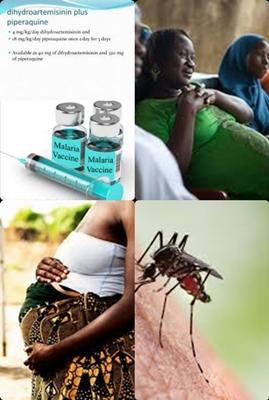
Objectives:
Intermittent preventive treatment (IPT) with sulphadoxine-pyrimethamine (SP) is recommended for preventing maternal and fetal effects of malaria in pregnancy. Increasing parasite resistance to sulphadoxine-pyrimethamine has necessitated the search for an alternative medication. Therefore, this review article has been conducted.
What is the magnitude of effects of dihydroartemisinin‐piperaquine (DP) and sulphadoxine‐pyrimethamine (SP) in preventing malaria during pregnancy?
Study design:
This review article included 3 RCTs involving 3,719 participants.
The trials commenced in 2011, 2012 and 2014 in Malawi, Kenya and Uganda, respectively. The included studies involved pregnant women who were given DP (as routine IPT, a three‐dose regimen, monthly regimen or as IST) and compared with those given SP.
Results and conclusions:
The investigators found compared with intermittent preventive treatment with sulphadoxine-pyrimethamine (IPT-SP), moderate certainty evidence indicated that women who received intermittent preventive treatment with a three‐dose regimen of dihydroartemisinin-piperaquine (IPT-DP) had a significantly lower risk of 83% [OR = 0.17, 95% CI = 0.10-0.29, 1171 participants] of clinical malaria during pregnancy.
The investigators found high certainty evidence showed intermittent screening and treatment with dihydroartemisinin-piperaquine did not reduce placental malaria [OR = 1.29, 95% CI = 1.10-1.50, 2 studies, 2,903 participants] or maternal parasitemia at delivery [OR = 1.39, 95% CI = 1.14-1.69, 2 studies, 2,903 participants].
The investigators found compared with intermittent preventive treatment with sulphadoxine-pyrimethamine (IPT-SP), moderate certainty evidence indicated that women who received intermittent preventive treatment with a monthly regimen of dihydroartemisinin-piperaquine (IPT-DP) had a significantly lower risk of 99% [OR 0.01, 95% CI = 0.00-0.19, 1 study, 206 participants] of clinical malaria during pregnancy.
The investigators found effect of dihydroartemisinin-piperaquine on low birth weight and adverse birth outcomes was minimal.
The investigators concluded the efficacy of DP as a potential agent for IPT for malaria in pregnancy reported in this review is limited by few studies and moderate certainty of the evidence. Although also limited by few studies, there is moderate to high certainty of evidence that the use of DP for intermittent screening and treatment (IST) of malaria is not superior to IPT‐SP. The findings from the studies included in this review indicate that further high‐quality research with large numbers of participants, in settings endemic for malaria infection, is needed to provide reliable evidence for policy and practice recommendations.
Original title:
A systematic review and meta-analysis of dihydroartemisinin-piperaquine versus sulphadoxine-pyrimethamine for malaria prevention in pregnancy by Olaleye A, Okusanya BO, […], Meremikwu M.
Link:
https://obgyn.onlinelibrary.wiley.com/doi/full/10.1002/ijgo.12835
Additional information of El Mondo:
Find more information/studies on food fortification/malnutrition and malaria right here.